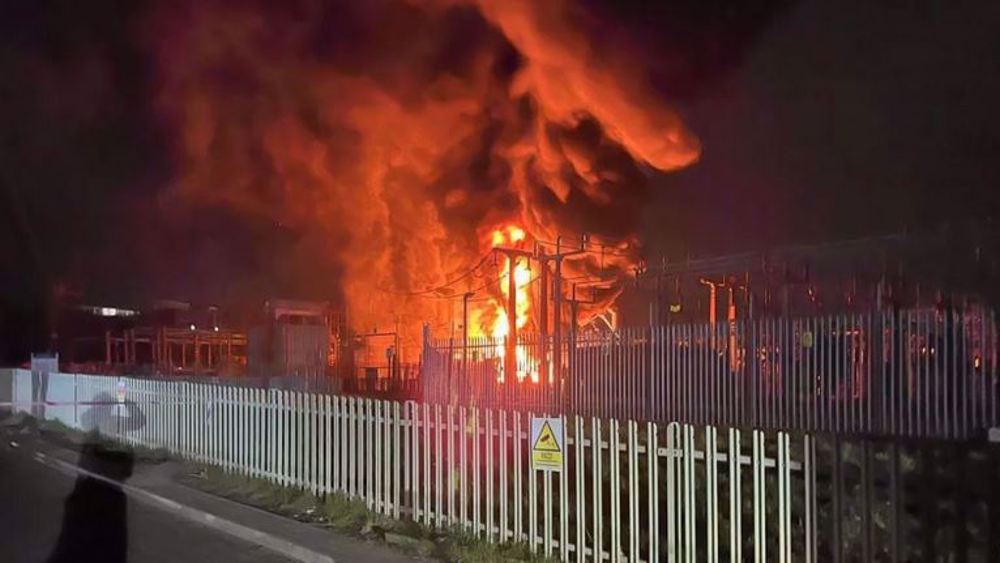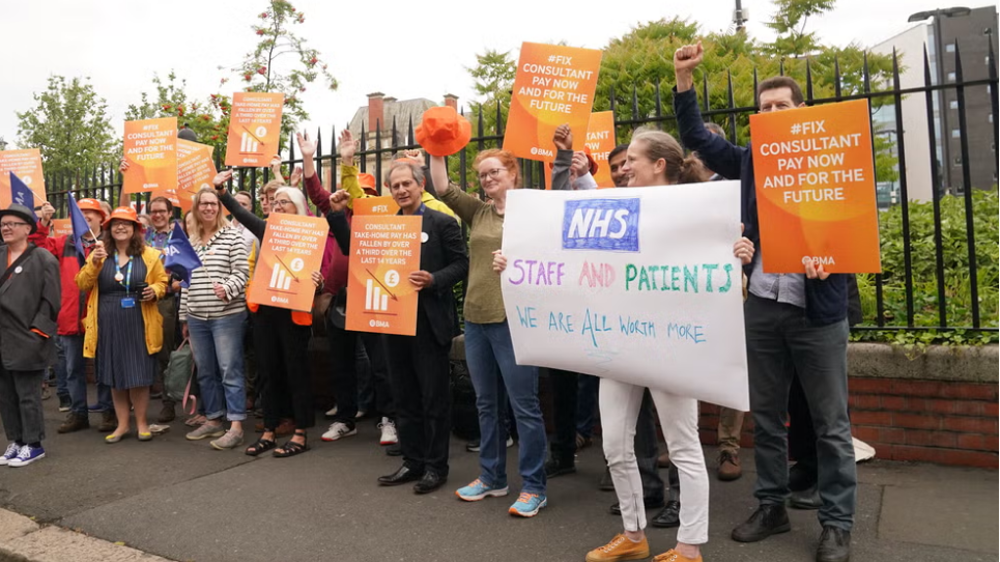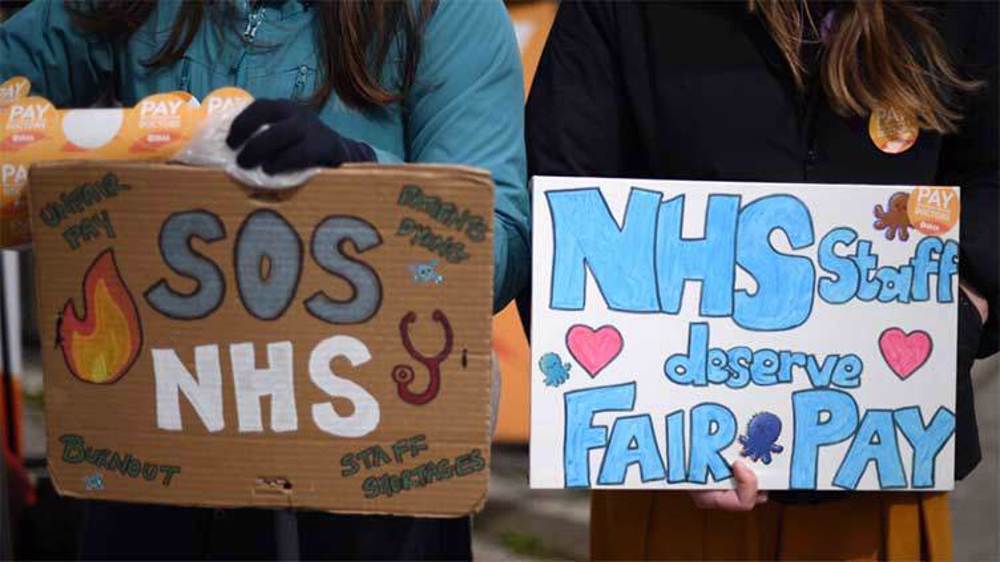Senior doctors in England stage first major walkout in decade, reject pay deal
Rejecting a meager pay rise offered by the government, thousands of senior doctors in England have staged their first major strike in a decade, a move expected to trigger massive disruption to health services.
As consultant doctors and hospital-based dentists began the biggest industrial action since 2012 at 07:00 local time on Thursday, the country’s state-funded National Health Service (NHS) warned that the 48-hour strike by the consultants would cause severe disruption to the British health system.
Thousands of planned appointments have been postponed due to walkout, which will last until 07:00 local time on Saturday. It spares only emergency care and a small amount of routine work, or the so-called Christmas Day cover.
In June, over 24,000 consultants voted in the British Medical Association (BMA) ballot for the current strike, with the vast majority (20,741 or 86 percent) voting in favor.
The strike came just two days after junior doctors ended their five-day walkout in their dispute over pay.
According to Nick Hulme, chief executive of the Ipswich and Colchester Hospitals, 50 percent of senior doctors there are on strike, and consequently stopped seeing many patients and will not be around to supervise the work of junior doctors.
If, for example, an anesthetic consultant did not turn up for work then you had to cancel the whole list of patients, he added. "You are then left potentially with a whole team who are then effectively redundant for the whole day."
London NHS Trusts warned that other clinical staff could not cover for consultants, the most senior doctors in the NHS.
During the 48-hour strike, people should dial 999 for life-threatening emergencies and to contact NHS 111 online for other health concerns.
Although the government has pledged that consultants will receive a six percent pay rise, the BMA has slammed the promise as "derisory," stressing that doctors have seen real-term take-home pay fall by more than a third over the last 14 years.
As a far-fetched solution to the dispute, the government has introduced strike legislation in order to contain industrial actions in the country's key sectors, forcing the staff to maintain a basic level of service during strike time or face dismissal.

Rights groups urge UK prime minister to hold back on anti-migrant rhetoric

Report: Most Britons ignorant about scale of UK slavery

London’s Heathrow announces shutdown due to ‘significant power outage’
Saudi Arabia, Iran stress willingness to expand military ties
VIDEO | Trump tariffs threaten ...
VIDEO | Iran's indirect talks on sanctions removal
VIDEO | Israeli concern over nuclear talks
Leader: Iran ready to share its advancements with Saudi Arabia
Iran's FM in Russia to 'consult on matters of common concern'
Saudi defense minister in Iran for talks on regional developments
Three days from freedom: 64th Palestinian abductee dies in Israeli captivity








 This makes it easy to access the Press TV website
This makes it easy to access the Press TV website